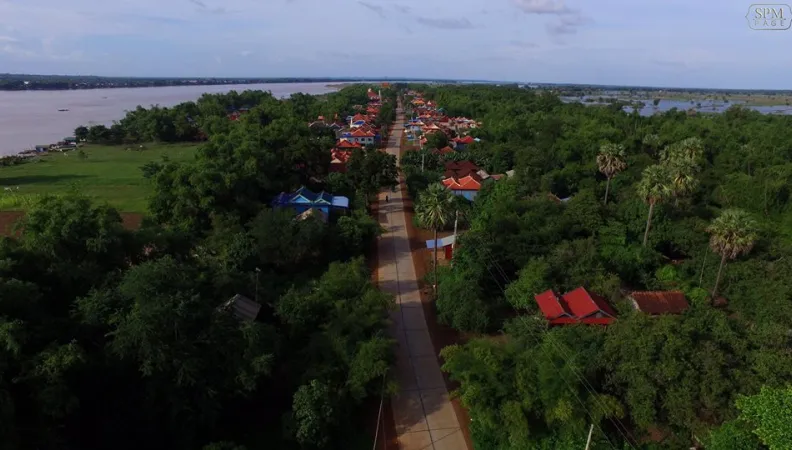Share the page
Improve the rural roads sustainably to support economic growth
Project


-
Project start date
-
Status
Ongoing
-
Project end date
-
-
Project duration
-
20 ans
-
AFD financing amount
-
€ 35000000
-
Country and region
-
Location
-
Kampong Cham, Takeo, Kampong Speu, Kampong Chhnang, Pursat, Battambang, Banteay Manchey, Siem Reap, Kampong Thom
-
Type of financing
-
Partners
-
Asian Development Bank
-
Beneficiaries
-
Ministry of Rural Development
Rural transport, especially road transport, is a catalyst for economic development. Through this project, 1,130 km of rural roads will be renewed to improve access to basic services for the rural population and to the productive rural areas of Cambodia’s central plain.
Context
80% of the Cambodian population lives in rural areas, especially along the Mekong River and around Tonle Sap. Although the poverty rate has decreased significantly, from 47.8% in 2007 to 19.8% in 2011, thanks to strong economic growth, rural poverty levels remain significant. Agriculture and related activities contribute up to 25% of GDP and employ 70% of the population. However, they are severely hampered by the poor quality of rural roads, especially during the rainy season. In 2010, the Asian Development Bank, in collaboration with the Ministry of Rural Development, initiated a first programme to restore 550 km of rural roads in seven agricultural provinces in the north-east of the country.
Description
This project uses the lessons learned from the first phase and its aims are:
- Upgrading of 1,130 km of rural roads in nine provinces;
- Capacity building for those involved in road infrastructure management;
- Improving socio-economic conditions for the local population, by raising awareness and providing training for communities on the faults in road development;
- Opening up of the Mekong islands in Kampong Cham province and improving the resilience of these highly flood-prone areas due to climatic variation.
Impacts
- Economic: improvement of traffic conditions for all types of transport and users, as well as revenue-generating crops and other products.
- Social: creation of direct and indirect jobs during and after the construction period, access to new outlets for local products, cost reduction for inputs and consumer goods and social opening up by facilitating access to the social, administrative and cultural infrastructure.


